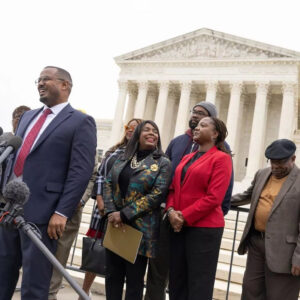Civil rights campaigners, such as the National Association for the Advancement of Colored People (NAACP) and others suggested several changes to Alabama’s state legislature so the congressional electoral map would include the second Black voters majority district.
The court’s decision was a surprise. It was narrowly voted through (five votes to four) as a result of one of the Republican-nominated justices, Brett Kavanaugh, siding with three Democrat-nominees and Chief Justice John Roberts.
Judges summed up that state lawmakers should have drawn another district “in which Black voters either comprise a voting-age majority or something quite close to it.”
The opposition to the decision adopted by the Supreme Court was led by Justice Clarence Thomas, who argued that the Voting Rights Act does not support the position that Alabama had ‘to intentionally redraw its longstanding congressional districts so that black voters can control a number of seats roughly proportional to the black share of the State’s population.’
“The law demands no such thing, and, if it did, the Constitution would not permit it,” he argued.
Civil rights groups were preparing for a loss in the Supreme Court where Republican appointees now hold a majority. “Alabama attempted to rewrite federal law by saying race had no place in redistricting,” said Deuel Ross, who argued on the side of the plaintiffs. “But because of the state’s sordid and well-documented history of racial discrimination, race must be used to remedy that past and ensure communities of color are not boxed out of the electoral process.”
Alabama’s Attorney General Steve Marshall said: “The State is still entitled to put on our full case at trial, and we are confident that the evidence will make clear that voters in Alabama, regardless of their race, have the same opportunity as any other members of the electorate to participate in the State’s political processes and elect representatives of their choice.”
This particular ruling is a textbook example for similar cases in Louisiana, Texas and Georgia, where plaintiffs are suing the state to include additional Black voting-age majority electoral districts.




